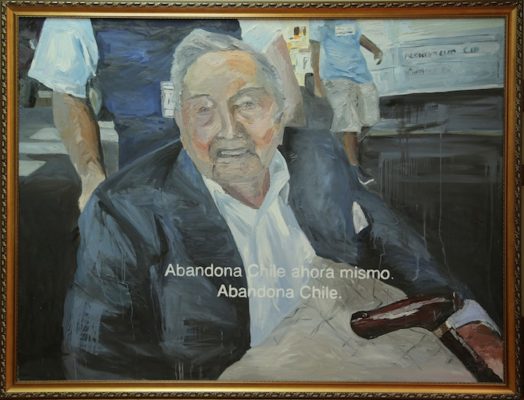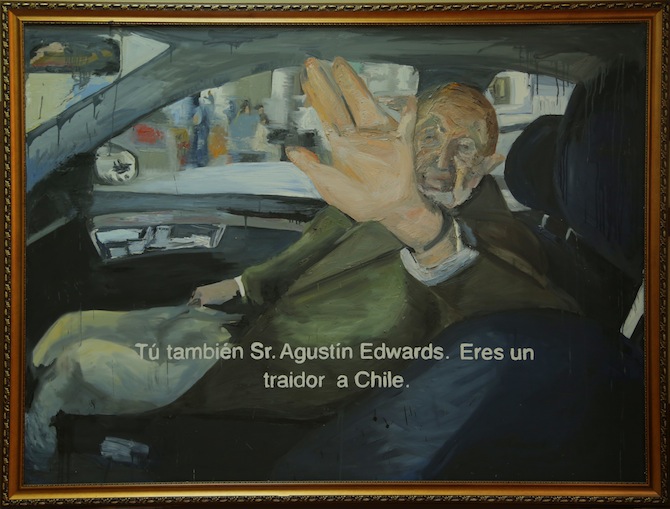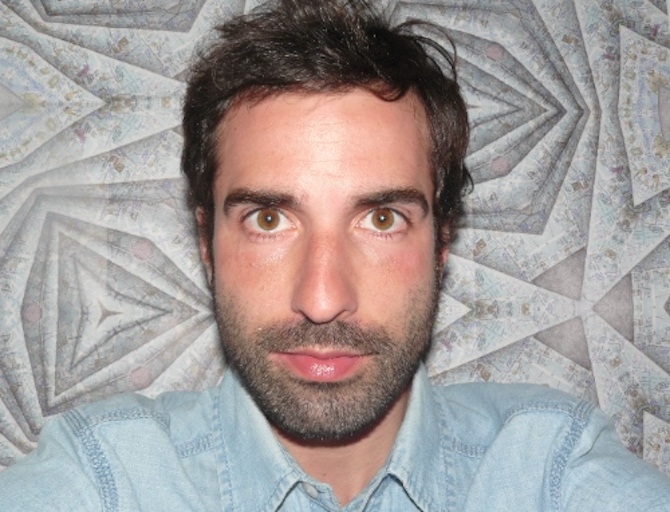Search
To search for an exact match, type the word or phrase you want in quotation marks.
A*DESK has been offering since 2002 contents about criticism and contemporary art. A*DESK has become consolidated thanks to all those who have believed in the project, all those who have followed us, debating, participating and collaborating. Many people have collaborated with A*DESK, and continue to do so. Their efforts, knowledge and belief in the project are what make it grow internationally. At A*DESK we have also generated work for over one hundred professionals in culture, from small collaborations with reviews and classes, to more prolonged and intense collaborations.
At A*DESK we believe in the need for free and universal access to culture and knowledge. We want to carry on being independent, remaining open to more ideas and opinions. If you believe in A*DESK, we need your backing to be able to continue. You can now participate in the project by supporting it. You can choose how much you want to contribute to the project.
You can decide how much you want to bring to the project.

Matías Rojas was 17 years old when he found himself at the main airport of Chile, all set to give a warm welcome to an old friend of the country, who was coming to spend his holidays: Mr David Rockefeller, grandfather of the “Mephistopheles of Cleveland”, John D. Rockefeller. As you can see in the images, Matías was already fairly excited when he discovered who was at the hands of the wheel of the car that came to pick Mr Rockefeller up: Mr Agustín Edwards.
Matías was beside himself. But why did this adolescent act in this manner? Who are these two charming old codgers?
I’m not going to stop and recount the adventures of the Rockefeller clan, or suggest that they are the Illimunati, the leaders of the World or the Horsemen of the Apocalypse, despite the fact they could be all three. I’m going to concentrate on their closer relations with Chile, and more specifically, with El Mercurio, the most powerful newspaper (and by a long way) in the country. And surprise surprise, the property of Agustín Edwards, Mr Rockefeller’s chauffeur.
To cut a long story short, in 1970 El Mercurio was on the brink of going bankrupt. That same year, the socialist Salvador Allende was elected President. Agustín Edwards travelled to Washington and thanks to the manoeuvres of the Rockefellers, met Henri Kissinger. Edwards returned to Chile with a smile on his face, 2.000.000$ (approved by Nixon) and a plan to destabilize, through lies and manipulations, Allende’s government. These manipulations multiplied before the coup d’état and during the later dictatorial era of Pinochet. This is all explained in the documentary, “El diario de Agustín”.
Released in 2008, the broadcasting rights were acquired by the National Television of Chile, -and expired in 2013-, but the documentary was never aired. The rights were later bought by another channel, ARTV. But it’s still not been broadcast.
These facts leave the schedule empty but full of questions. Why was Rockefeller so interested in minerals like gold and mercury? Why does censorship continue to exist in a democratic country? Why does it seem that nobody wants to question the power of these two families, apart from a 17 years old boy with a caffeine rush? Why are the freedom of the press, human rights and economic equality on leave in Chile?
The story could continue with the search for relations between Malú Edwards and MOMA, Agustín Edwards Mac-Clure and the League of Nations, the Chicago Boys, the awards given by the Rockefeller to the Chilean democratic presidents and the extensive purchasing of lands in the south of Chile, but let’s talk about art (finally).
Marco Arias, an art student, took the “You-tube” video from the airport and immortalised it in oil on canvas. The result is a parody of presidential portraits. It is the official postmodern portrait of two charming old men on holiday. Perhaps in search of permanent rest. I ask myself whether it will be in “Heavens Resort” or in “Hell’s Motel”. Perhaps we should ask Mephistopheles.


His intention is to continue to improve his writing of art criticism; everything else is enjoying and learning from contemporary proposals, establishing other strategies of relations, either as a contributor to magazines, editor of a review, curator or lecturer. As a backpacking art critic, he has shared moments with artists from Central America, Mexico and Chile. And the list will continue. Combating self-interested art, applauding interesting art.
"A desk is a dangerous place from which to watch the world" (John Le Carré)